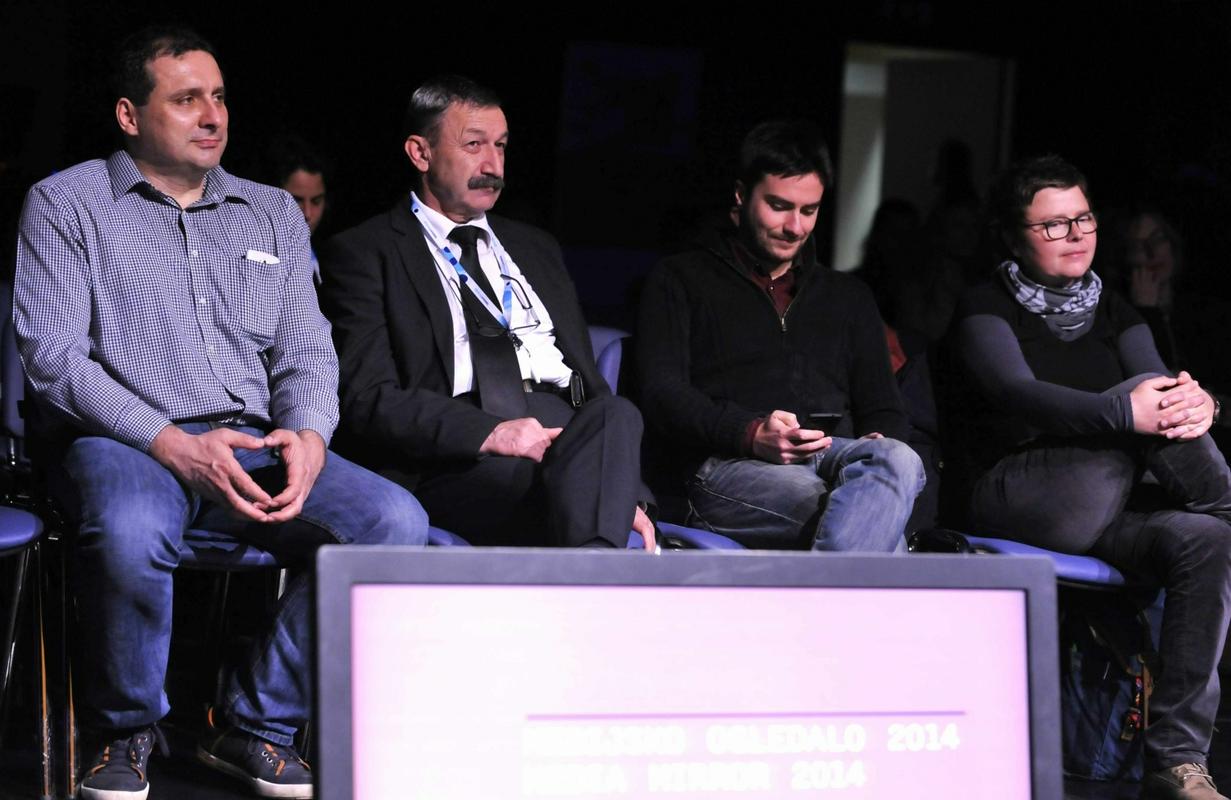
The purpose of the three-day journalist festival Naprej/Forward is to introduce good practices to journalist colleagues, and to get acquainted with work of different media companies and individuals. Journalist should also learn what representatives of public think of their work. Eight experts from different fields gave their opinions on Thursday, at Media Mirror 2014.
"Journalists preserved public health care system"
"Media hold the mirror up to the state, and if they do it efficiently, expertly, and impartially, they act as the fourth branch of authority," emphasized lawyer Maja Bogataj Jančič from the Institute for Intellectual Property. In some cases they are especially successful. Surgeon Erik Brecelj is convinced that journalists with their reporting during the last years assured that Slovenia preserved public health care: "I am familiar with the way of thinking of people acting from the background, and how sensitive they are when irregularities are made public by journalists, and when their names are mentioned." Persistent opening of controversial topics from that field prevented realization of the planned sale of property and hospitals, he continued.
Opinion is not the same as arguments
On the other hand readers, viewers, listeners, users can, in extreme cases, become also victims of poor journalistic work. Quickly published unverified information, e.g. "miraculous recovery of cancer patients thanks to hemp, or starvation diet"; setting out of one controversial study on vaccination, while neglecting results of many years of analyses and their results; voicing opinions of "scientific charlatans" can cause a lot of damage to people who make decisions on their treatment, and life, based on such articles; in the worst cases they can be fatal.
Therefore it is of utmost importance that media remain on the side of the facts, and basic human rights. "It is disputable when the same space is given to an expert whose statements are based on scientific results, and to a person whose opinion arises from a particular interest;" says scientists and researcher at the Marine Biology Station Piran Matjaž Ličer. He sees no good side of the praised balance of media, as it always arises from political correctness, and right to opinion. But opinions are just that, opinions, and not arguments. Those who wish to publish their opinions can do so at web forums.
Sensationalism conceals real problems
Exaggerated or sensationalistic reports on one topic, or one problem can conceal serious problems. According to psychotherapist Tine Bončina such was media response to the occurrence of ebola. Although ebola spread through three African states, the reports were such as if the entire African continent was infected. Yet it would be much more useful for our space to direct the attention to obesity, as a lot of people die because of it. The speed with which information spread in media can either help, or be detrimental.
In order to avoid such mistakes journalists have to be well familiar with the topic on which they report. All the speakers agreed that often journalist are not prepared adequately, and their interviewees have to give them basic explanations, or keep repeating themselves in order to be understood. "Constantly the questions are asked about the role of the Slovenian army at rescue and protection of inhabitants. But that is regulated by legislation, and there are rules," Head of the Civil Protection of the Republic of Slovenia Srečko Šestan mentioned the topic which is repeatedly discussed in media, whenever a natural disaster occurs.
But he still believes that the work of journalists in such cases has improved during the last years. Yet he would like them to increase the awareness of people, who are the first responsible for protection of their property, and for help to those close to them.
"Media are under pressure, but in spite of that I wish they would hold the mirror on the society with more responsibility, as they have a role in shaping it," Maja Bogataj Jančič advised journalists and editors.


































































